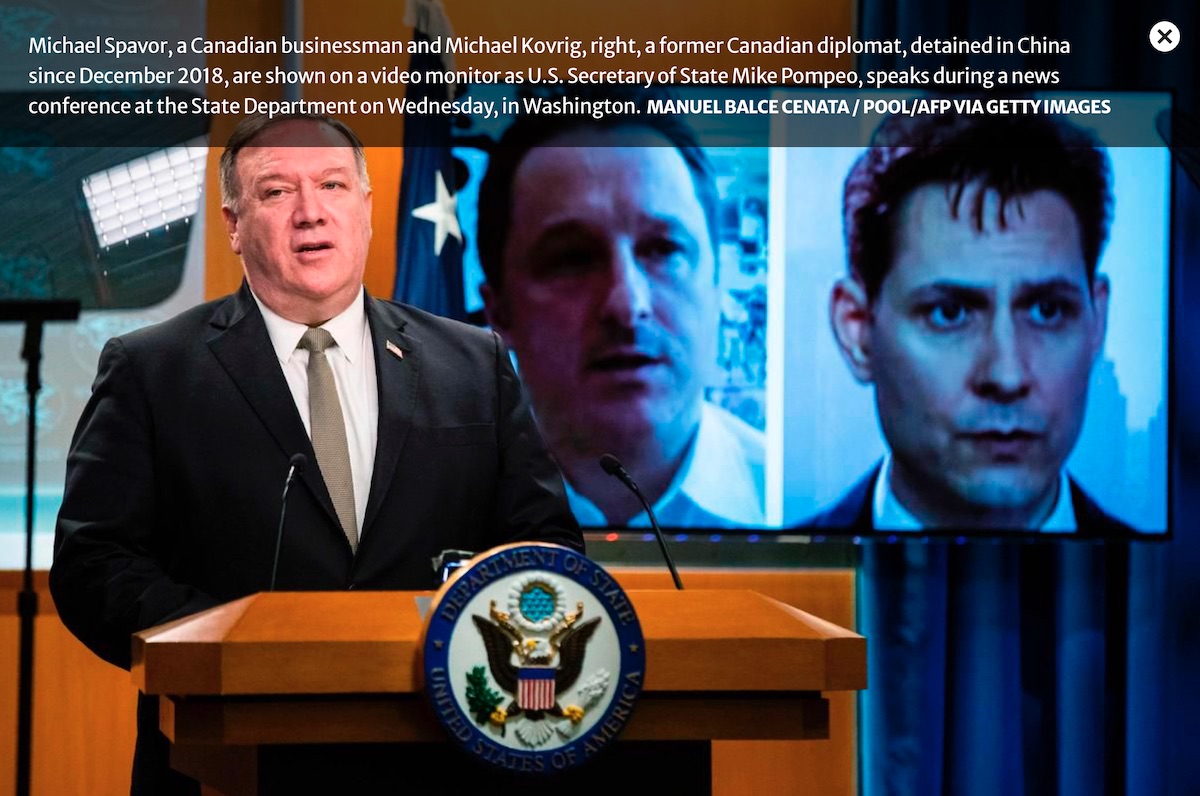Late last month, the prime minister rejected a proposal by 19 prominent Canadians, who urged the government to take the latter approach. Former PM Jean Chrétien made a similar suggestion last year, which was rejected by then-Foreign Minister Chrystia Freeland, who told Canadians that “it would be a very dangerous precedent indeed for Canada to alter its behaviour when it comes to honouring an extradition treaty in response to external pressure.”
By capitulating to China’s hostage-taking, Canada would only invite more of the same in future diplomatic disputes, putting countless Canadians at risk abroad while undermining confidence in the rule-of-law at home.
That being said, there is little to indicate that Canada’s quiet diplomacy of the past 18 months will suddenly bear fruit.
It is time for Canada to take a new tack, one aimed at securing the two Michaels’ release by putting meaningful and measured pressure on a regime that has scant respect for diplomatic niceties and even less for human rights.
In our view, Canada has numerous options:
One is to call out Huawei for what it is: an ostensibly private company that is in fact so closely tied to the Chinese state as to be in some respects indistinguishable from it — precisely why Beijing sees Meng’s detention as such an intolerable affront. From the perspective of national security, the Trudeau government should consider banning the sale of all Huawei products and technologies in our marketplace, in addition to prohibiting their participation in the building our 5G network. We should co-ordinate and work with all of our allies to advocate for them to do the same, not just those in the Five Eyes intelligence alliance.
Canada could also take punitive measures against individual Chinese officials involved in the detention of the two Michaels, both of whom are being held in oppressive conditions and have endured what has been described as “torture” as they await near-certain conviction on false charges.
Canada’s Magnitsky law, which allows for the imposition of targeted economic sanctions and travel bans on foreign human-rights abusers, was designed for just this sort of case. It should be deployed to full effect and other countries with similar legislation — chief among them the United States — should be actively encouraged to co-ordinate with Canada to apply their own Magnitsky sanctions on Chinese officials responsible for the incarceration of Spavor and Kovrig.
Finally, Canada should consider expelling as personae non gratae any number of Chinese officials and staff engaged in disinformation and influence operations targeting Chinese-Canadian communities. Beijing’s well documented covert interference in our domestic politics is just as unacceptable as its overt bullying and blackmail; it deserves a strong response, and now may be just the time for one.
Of course, none of these options are without risk, and we do not propose them lightly. But there is danger in whatever Canada does. The Trudeau government must redouble its efforts to secure the two Michaels’ release through more aggressive means. Quiet diplomacy is not working. It is time to raise the volume.
Written by Gary Caroline and Marcus Kolga, The Star, July 2020
Gary Caroline is the principal of Caroline Law Corporation and an expert on consular affairs. Marcus Kolga is a senior fellow at the Macdonald-Laurier Institute and a Canadian leader in the international campaign for Magnitsky sanctions. They are partners in the international crisis management company Ofelas Group.




